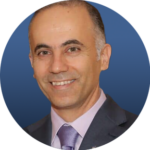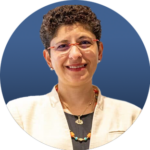MED Panels

Fabio Petito
Senior Associate Research Fellow, ISPI

Fadi Daou
Executive Director, Globe Ethics Foundation, Geneva

Marina Sereni
Vice-Minister of Foreign Affairs and International Cooperation, Italy

Noemi Di Segni
President, Union of Italian Jewish Communities

Azza Karam
Secretary General, Religions for Peace

Margaret Karram
President, Focolare Movement

Miroslaw Wachowski
Under-Secretary for the Relations with States, the Holy See

Haya Aljadoua
Advisor of the Secretary General, World Muslim League
Recent events like the international community withdrawal from Afghanistan, the 9/11 20th anniversary of as well as the sight of the end of the pandemic, seems to signal the twilight of an era of twenty years crisis which has also affected the Mediterranean region very much, leaving it arguably more unstable, polarised and fragmented than it was twenty years ago. Too often religion seem to have been on the side of extremism and nationalism and at the centre of a global scenario of conflict and insecurity, shaped by the ‘West/Europe versus Islam’ narrative of the civilizational clash or even the Christian-Muslim divides of the religious wars. Today policy makers around the world increasingly recognise that religion can be part of the solution and a strategic resource for diplomacy, peacebuilding, the strengthening of human rights and the advancement sustainable development. “Religious engagement” is emerging as one of the most promising fields of strategic and creative thinking on which governments and international organisations are working collaboratively with religious organisations to achieve common goals.
Against a sometimes-gloomy background, seeds of hope for unity can be seen to grow through the process opened by the historical Document on Human Fraternity, co-signed in 2019 by Pope Francis and the Grand Imam of Al-Azhar, Sheikh Ahmed Al-Tayeb. This year Rome MED report on Human Fraternity and Inclusive Citizenship: Interreligious Engagement in the Mediterranean has tried to translate this élan into the foreign policy context by putting forward interreligious engagement as a new policy framework that amplifies these novel interreligious dynamics through innovative government-religious partnerships aimed at achieving more inclusive and peaceful societies. The vision of human fraternity and the prospect of inclusive citizenship, offspring of a new era of interreligious engagement, carries the promise of a new realistic politics of hope for the Mediterranean. The discourses of human fraternity and inclusive citizenship. At this epochal juncture, therefore, it is perhaps useful to ask again with a new urgency and realism several “how” questions:
Given the seriousness of the crisis, how can religious leaders and communities be more actively involved in the public discussion to stretch the imagination of the possible non-violent strategies to build peace and foster fraternity in the Mediterranean?
How can the policy community amplify and facilitate the growth of these seeds of hope for unity?
How can governments invest in supporting the significant potential of these new strategies of interreligious engagement across the Mediterranean?